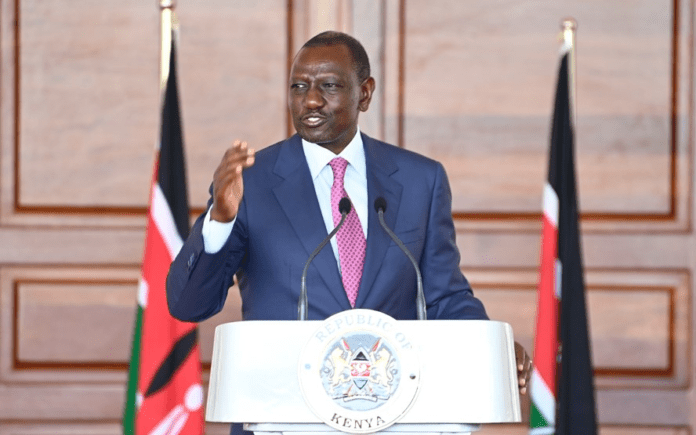The High Court has suspended President William Ruto’s directive requiring government entities to onboard onto the e-Citizen services platform.
Justice Bahati Mwamuye also blocked the dismissal of heads of government entities for failing to implement the directive. The judge directed Kituo Cha Sheria, the petitioner in the case, to serve their application on the Attorney General, the Cabinet Secretary for Treasury, and the Principal Secretary for Immigration by Friday at 5 p.m.
Parties involved in the case are set to present their submissions on January 31 next year.
The directive, issued by Ruto on November 28, required Chief Executive Officers of various institutions to onboard to the e-Citizen platform within one week. The President cited a 2014 Treasury Gazette notice as the basis for his directive.
However, the petitioners, Kituo Cha Sheria and Hillary Mokaya, argue that the notices are unconstitutional as they were issued without public participation and lack the necessary legislative framework. They also contend that Ruto overstepped his authority by compelling entities to comply within a short timeframe.
“Ruto’s directive and its implementation contravene the law, which vests the responsibility of managing the affairs of these entities in their respective boards, councils, or commissions,” the petitioners stated.
The petitioners have highlighted the Independent Policing Oversight Authority as an interested party, arguing that its independence must be safeguarded. They further assert that IPOA and similar entities are not subject to external influence in the performance of their functions.
The court was asked to preserve the status quo and restrain the dismissal of CEOs who failed to implement the directive.
Affected institutions include Tana Athi Water Works Development Agency, Kenya Power, various banks, and their Chief Executive Officers.
In his televised speech, President Ruto criticized approximately 34 entities for bypassing the e-Citizen platform and using alternative payment methods, which he claimed undermined accountability and facilitated corruption.
Related Articles





![SHA Suspends Dozens of Health Facilities Over Alleged Fraud [LIST]](https://citymirror.ke/wp-content/uploads/2024/12/image-14-218x150.png)

